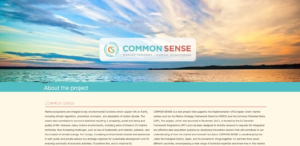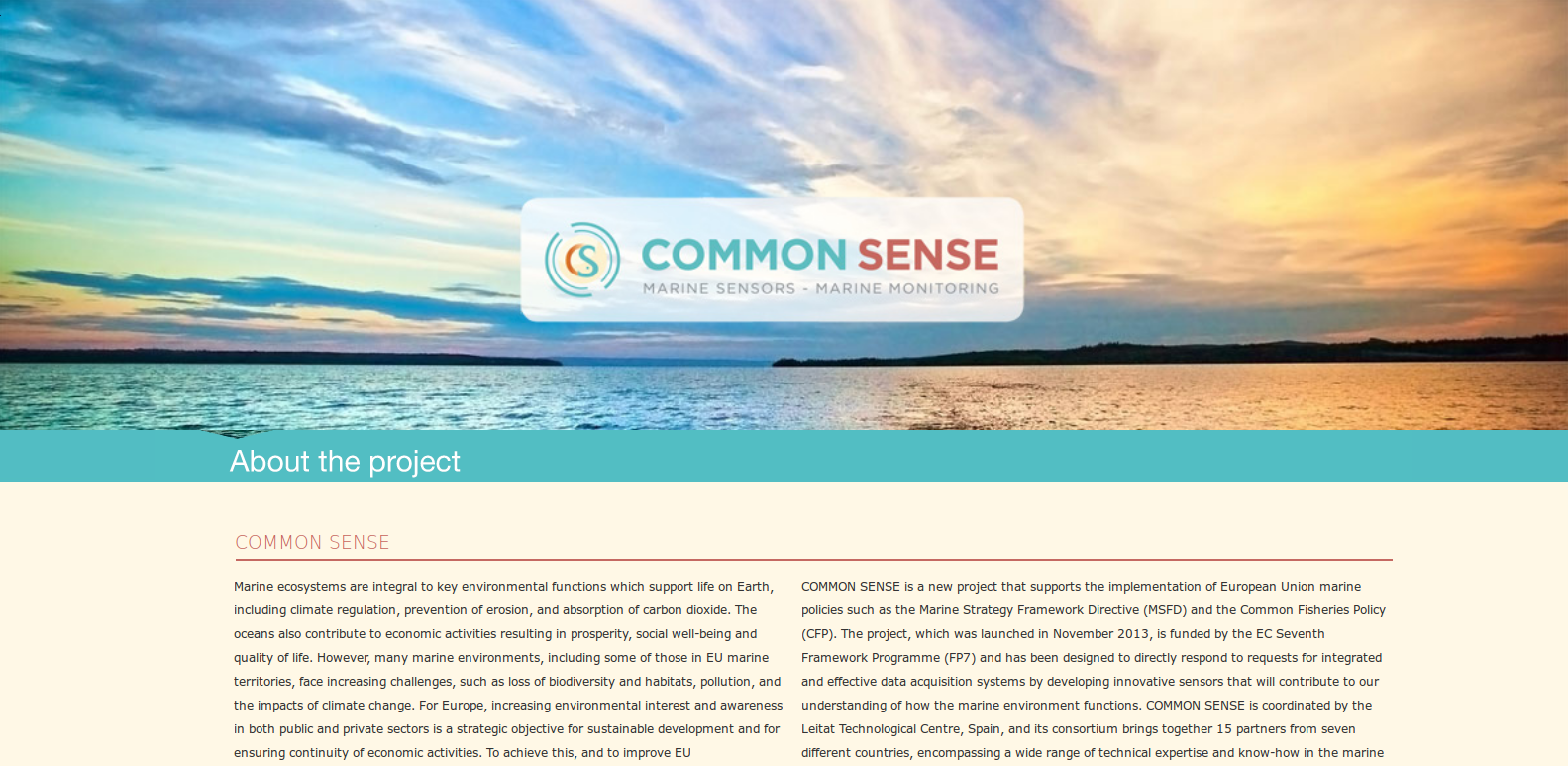Free event: Observing in real time the Ocean with highly sensitive Sensors
 This event will present the theoretical and practical results of COMMON SENSE with on-site demonstration in real time with the sensors used during the project. The sensors can create standardised data on eutrophication, marine litter focused on microplastics, underwater noise and other parameters (e.g. temperature, pressure, pH and pCO2).
This event will present the theoretical and practical results of COMMON SENSE with on-site demonstration in real time with the sensors used during the project. The sensors can create standardised data on eutrophication, marine litter focused on microplastics, underwater noise and other parameters (e.g. temperature, pressure, pH and pCO2).
Various highly sensitive and advanced sensors will be presented in water showing real-time data!
Click here to download the draft agenda and here to register!
About the project:
Marine ecosystems are integral to key environmental functions which support life on Earth, including climate regulation, prevention of erosion, and absorption of carbon dioxide. The oceans also contribute to economic activities resulting in prosperity, social well-being and quality of life. However, many marine environments, including some of those in EU marine territories, face increasing challenges, such as loss of biodiversity and habitats, pollution, and the impacts of climate change. For Europe, increasing environmental interest and awareness in both public and private sectors is a strategic objective for sustainable development and for ensuring continuity of economic activities. To achieve this, and to improve EU competitiveness, new technologies and methods for monitoring the marine environment are required.
COMMON SENSE is a new project that supports the implementation of European Union marine policies such as the Marine Strategy Framework Directive (MSFD) and the Common Fisheries Policy (CFP). The project, which was launched in November 2013, is funded by the EC Seventh Framework Programme (FP7) and has been designed to directly respond to requests for integrated and effective data acquisition systems by developing innovative sensors that will contribute to our understanding of how the marine environment functions. COMMON SENSE is coordinated by the Leitat Technological Centre, Spain, and its consortium brings together 15 partners from seven different countries, encompassing a wide range of technical expertise and know-how in the marine monitoring area.

